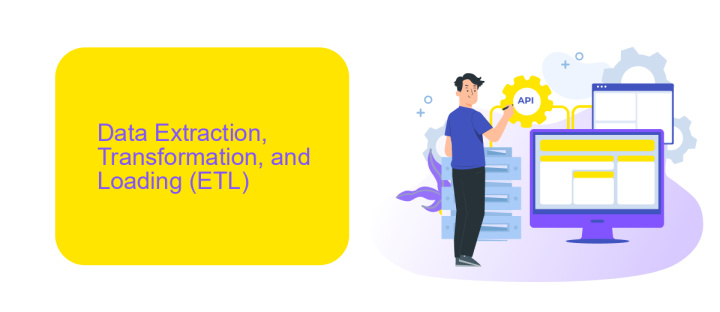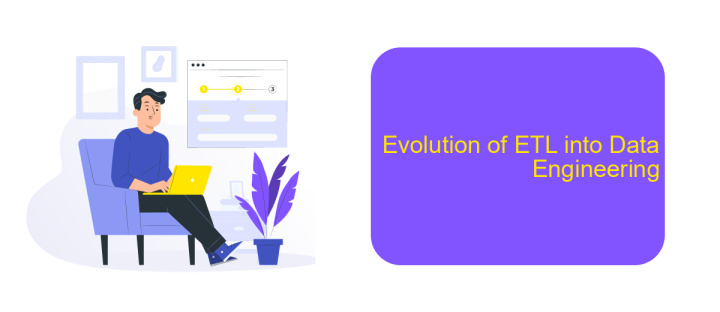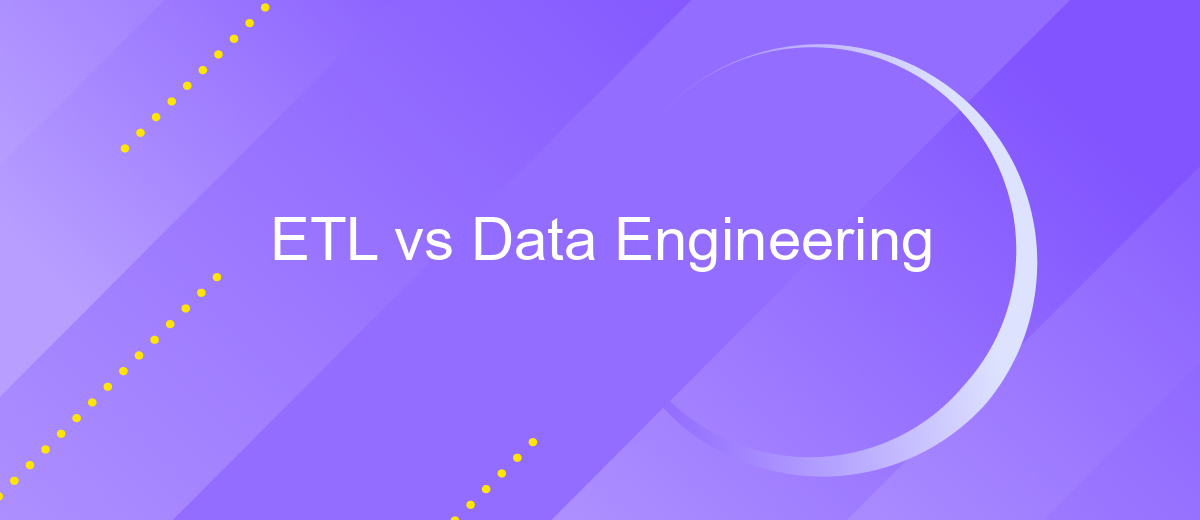ETL vs Data Engineering
In the realm of data management, ETL (Extract, Transform, Load) and Data Engineering are often discussed in tandem, yet they serve distinct functions. While ETL focuses on the pipeline process of extracting, transforming, and loading data, Data Engineering encompasses a broader scope, including the architecture, design, and maintenance of data systems. Understanding their differences is crucial for optimizing data workflows.
ETL vs Data Engineering: Similarities, Differences, and Evolution
ETL (Extract, Transform, Load) and Data Engineering are essential components in the data management ecosystem, each playing unique roles. ETL focuses on extracting data from various sources, transforming it into a suitable format, and loading it into a data warehouse. Data Engineering, on the other hand, encompasses a broader scope, including the design, construction, and maintenance of data architectures and pipelines.
- ETL: Involves data extraction, transformation, and loading.
- Data Engineering: Covers data architecture, pipeline development, and data integration.
- Overlap: Both aim to ensure data is accessible and usable for analysis.
While ETL is a subset of Data Engineering, the latter has evolved to include modern tools and practices such as real-time data processing and cloud-based solutions. Services like ApiX-Drive facilitate seamless integration and automation of data workflows, enhancing both ETL processes and broader data engineering tasks. This evolution underscores the importance of robust data management strategies in today’s data-driven world.
Data Extraction, Transformation, and Loading (ETL)

Data Extraction, Transformation, and Loading (ETL) is a critical process in data management, enabling organizations to consolidate data from multiple sources into a single, coherent data store for analysis. The extraction phase involves retrieving data from various sources, such as databases, APIs, or flat files. Tools like ApiX-Drive can facilitate this process by automating data extraction from a wide range of platforms, ensuring data is collected efficiently and accurately.
Once data is extracted, the transformation phase begins, where raw data is cleaned, normalized, and structured to meet specific requirements. This step ensures data consistency and quality, making it suitable for analysis. Finally, the loading phase involves transferring the transformed data into a target database or data warehouse. This entire ETL process is essential for making data actionable and insightful, enabling businesses to make informed decisions based on reliable and well-structured data.
Data Engineering: A Broader Perspective

Data engineering encompasses a wide range of tasks that go beyond the traditional ETL (Extract, Transform, Load) processes. It involves the design, construction, and maintenance of systems and architectures that enable the collection, storage, and analysis of large volumes of data. Data engineers play a crucial role in ensuring that data is accessible, reliable, and ready for analysis by data scientists and analysts.
- Data Collection: Gathering data from various sources, including databases, APIs, and external services.
- Data Storage: Designing and implementing data storage solutions, such as data warehouses and data lakes.
- Data Processing: Transforming raw data into a usable format through cleaning, normalization, and aggregation.
- Data Integration: Combining data from different sources to create a unified view, often using tools like ApiX-Drive for seamless integration.
- Data Security: Ensuring that data is protected through encryption, access controls, and compliance with regulations.
By focusing on these areas, data engineering provides a robust foundation for data-driven decision-making. Tools like ApiX-Drive facilitate the integration of various data sources, making it easier for organizations to streamline their data workflows and leverage insights effectively. This broader perspective highlights the importance of data engineering in the modern data ecosystem.
Evolution of ETL into Data Engineering

ETL (Extract, Transform, Load) has been a cornerstone of data management for decades, facilitating the movement and transformation of data from various sources into a centralized data warehouse. However, as data volumes and complexities have grown, the traditional ETL process has evolved into what we now term Data Engineering.
Data Engineering encompasses a broader scope, focusing on the end-to-end pipeline that includes not just data extraction and transformation, but also data integration, real-time processing, and advanced analytics. This evolution has been driven by the need for more scalable, flexible, and efficient data handling solutions.
- Scalability: Modern data engineering practices can handle vast amounts of data in real-time.
- Flexibility: Tools and frameworks have emerged to support diverse data types and sources.
- Integration: Services like ApiX-Drive facilitate seamless integration between various data systems and applications.
- Advanced Analytics: Enhanced capabilities for machine learning and predictive analytics are now integral parts of data engineering.
In this new landscape, data engineers play a pivotal role in designing and maintaining robust data pipelines. They ensure that data is not only available but also reliable and ready for analysis, thereby empowering organizations to make data-driven decisions more effectively.
- Automate the work of an online store or landing
- Empower through integration
- Don't spend money on programmers and integrators
- Save time by automating routine tasks
Conclusion
In conclusion, the roles of ETL and Data Engineering are both crucial in the modern data landscape. While ETL focuses on the extraction, transformation, and loading of data, Data Engineering encompasses a broader scope, including the design, construction, and maintenance of scalable data architectures. Both disciplines are essential for ensuring that data is accurate, accessible, and ready for analysis, enabling businesses to make data-driven decisions.
Integrating these processes can be streamlined with tools like ApiX-Drive, which facilitate seamless data integration across various platforms. By leveraging such services, organizations can automate and optimize their data workflows, reducing manual effort and minimizing errors. Ultimately, the synergy between ETL and Data Engineering, supported by robust integration tools, is key to unlocking the full potential of data in any enterprise.
FAQ
What is the main difference between ETL and Data Engineering?
Why is ETL important in data engineering?
Can ETL processes be automated?
What skills are essential for a data engineer working with ETL?
How does data engineering support data analytics?
Routine tasks take a lot of time from employees? Do they burn out, do not have enough working day for the main duties and important things? Do you understand that the only way out of this situation in modern realities is automation? Try Apix-Drive for free and make sure that the online connector in 5 minutes of setting up integration will remove a significant part of the routine from your life and free up time for you and your employees.


